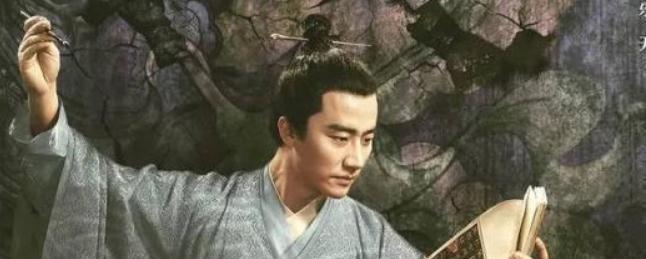The main basis for modern people to study ancient history is the history books left by the ancients. These history books record many people and events that have occurred in the past years, allowing modern people to peek into the era that has passed. However, there is a famous saying that "it is better to believe in books than to have no books", when the ancients recorded history, they inevitably had to be affected by the social situation and personal feelings at that time, resulting in some deviations in history books, so future generations must quote and read books to the greatest extent possible.

Zhao Kuangyin, the grandfather of the Song Dynasty, was the leader of the ancient Chinese emperors, and was listed as one of the four great ming emperors alongside Qin Shi Huang, Emperor Wu of Han, and Tang Taizong. Zhao Kuangyin's Song Dynasty territory was far inferior to that of the Han, Tang, Ming, and Qing dynasties, and wubei was also known for its weakness, but the reason why he was immortal was because he had a distinctive characteristic: he was benevolent and did not like to kill, and was regarded as the representative of the ancient benevolent and righteous king.
The history books praised this characteristic of Zhao Kuangyin like a tidal wave, "Taizu has the world, saves the chaos of five generations, does not kill a single person, since ancient times, non-Han and Tang can be compared", "Song Zu Longxing, Renhou jianguo", "Song Taizu founded the country with loyalty, did not try to kill a major general, but just because of the fortune of the xingwang, he succeeded, and there was nothing to kill", and praised Zhao Kuangyin's benevolence and generosity with one voice.
But in fact, this statement is not without bias, and many of them are the praise of the royal literati. Zhao Kuangyin is not fundamentally different from other emperors, it is still "those who follow us prosper, those who oppose us perish", once someone dares to oppose him and stand against him, he will still mercilessly hurt the killer, but the means are more obscure. On the first day of his ascension to the throne, Zhao Kuangyin once shot a military general to death with a random arrow.
In 960, on the first day of the first lunar month, Zhao Kuangyin carefully planned a Mutiny of Chen Qiao. He first lied about the military situation and claimed that the Khitan invaded, and then took the opportunity to gain military power and lead a large army to "go out", and at Chen Qiaoyi outside Kaifeng, his henchmen and cadres launched a mutiny, supporting Zhao Kuangyin as emperor, and then came back to the capital with a horse gun, and usurped the power of the Later Zhou Emperor in one sentence.
I have to admit that the Chen Qiao Mutiny planned by Zhao Kuangyin was very successful, and the vast majority of the Later Zhou military and civilians were stunned and overwhelmed by the shock and confusion of being unprepared, and watched Zhao Kuangyin's yellow robe added to the body as a fait accompli. However, not everyone took a tacit attitude towards this matter, and one military general rebelled with indignation.
This person is the famous General Han Tong of the Later Zhou. Han Tong was a native of Shanxi and Zhou, a senior general of the Later Zhou Dynasty, who served as a lieutenant of the Inspection School, Tongping Zhangshi, and the deputy commander of the Ma Infantry Army, and was one of the most trusted military generals of Zhou Shizong Chai Rong. Han Tong was brilliant and loyal, and made great contributions in the later Zhou Dynasty's war against the Khitans. Han Tong is also proficient in water conservancy and is very concerned about the people, during his stationing in various places, he built water conservancy to benefit one side, organized large-scale water conservancy projects such as dredging the Hulu River in Hebei and harnessing the Yellow River in Henan, which were deeply loved by the people.
On the day of the Chen Qiao Mutiny, after Zhao Kuangyin led a large army into the city, in order to prevent the Later Zhou Forbidden Army from resisting, he immediately assigned troops to guard the key passes of each street, arranged crossbowmen and archers in dangerous places, and encountered resistance and suspicious figures to be killed. Han Tong was on duty in the palace, when he heard the news of Zhao Kuangyin's rebellion, he was shocked, hurriedly put on his armor, and rushed out of the palace alone, wanting to rush to the camp of the forbidden army to organize resistance.
Where did Han Tong know that Zhao Kuangyin had already laid a net around the palace. Han Tong ran to the right gate bridge, saw Zhao Kuangyin's rebels blocking the bridge head to prohibit passage, he did not say a word to beat Ma Yang whip to try to forcibly rush to kill the past, Zhao Kuangyin already had an order first, the soldiers immediately unceremoniously fired arrows, Han Tong immediately died in a rain of arrows. In order to cut the grass and remove the roots, Zhao Kuangyin's generals rushed into Han Tong's mansion and killed his wife and eldest son, second son, and third son, but only the four sons in the swaddling were spared. Afterwards, Zhao Kuangyin also posthumously posthumously honored Han Tong as Zhongshu Ling and held a grand funeral to hide his eyes and ears.
After Han Tong's death, the people of Hebei, where he had been stationed for a long time, all mourned him. Han Tong was stationed in a village called Guanghua Village, which was later renamed Han Tong Village, which still exists today, and people still remember him in this way.
References: "Notes on ShuiShui", "Recent Records of Smelling", "History of Song"